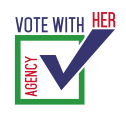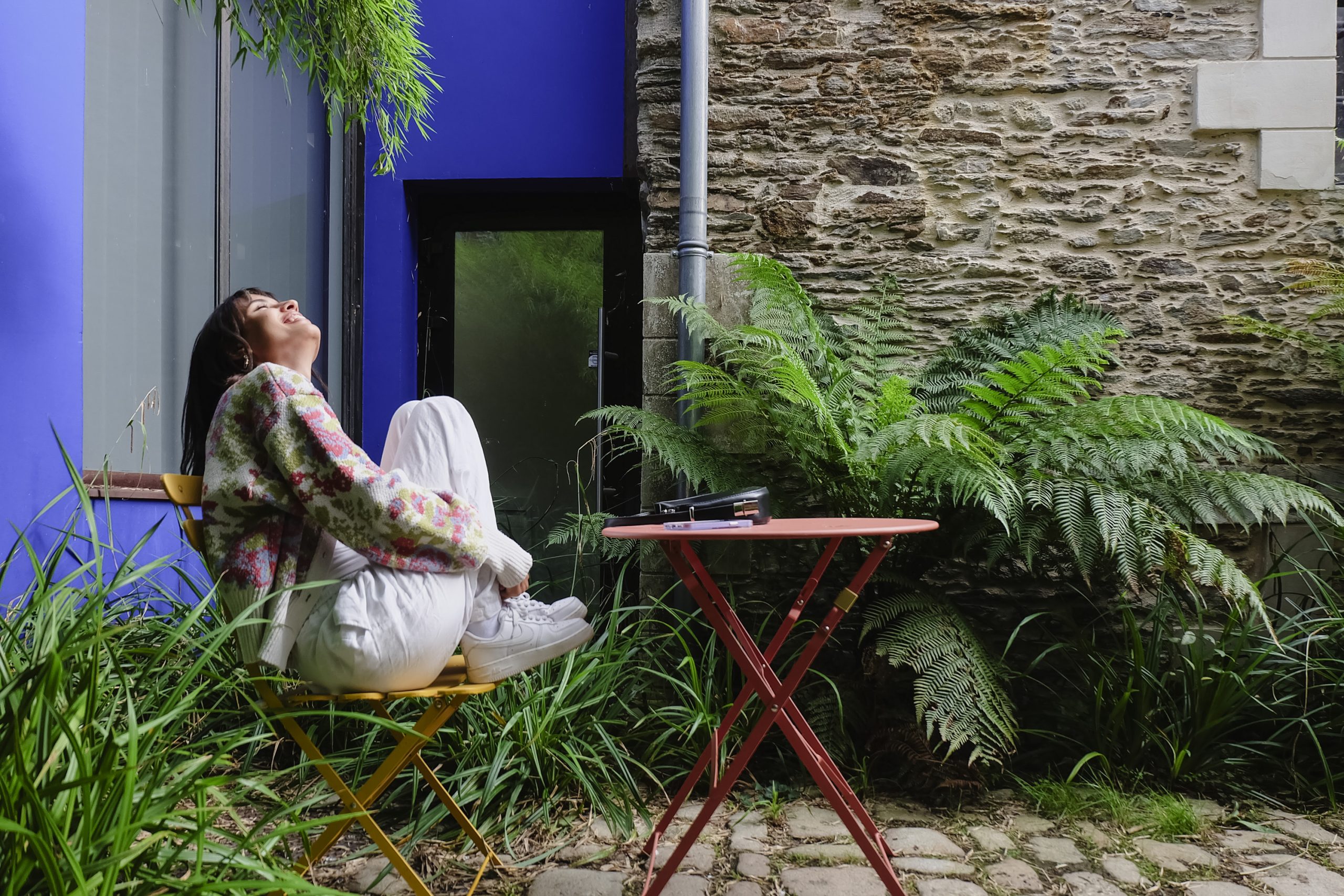
Voices Unveiled: When the testimony of refugee women resonates through the lens
Text and photos by Mila Auvinet
The exhibition “Voices Unveiled: When the testimony of refugee women resonates through the lens” reveals the emotional journey of migrant women through five photographs.
The first image shows a table, a center of administrative and emotional exchange for women in search of mental health care, highlighting barriers to accessing mental health services.
The second photo features Ola, a Syrian refugee, illustrating the linguistic and cultural challenges in her search for psychological support.
The third photo highlights Tina, who transforms her discomfort linked to the impossibility of acting against the crimes committed in Iran, into active political commitment in France.
The fourth image depicts Fereshteh, a dancer and activist, symbolizing the fight for justice beyond borders.
Finally, the fifth photograph captures the therapeutic importance of writing for the transmission of testimonies after psychological trauma.
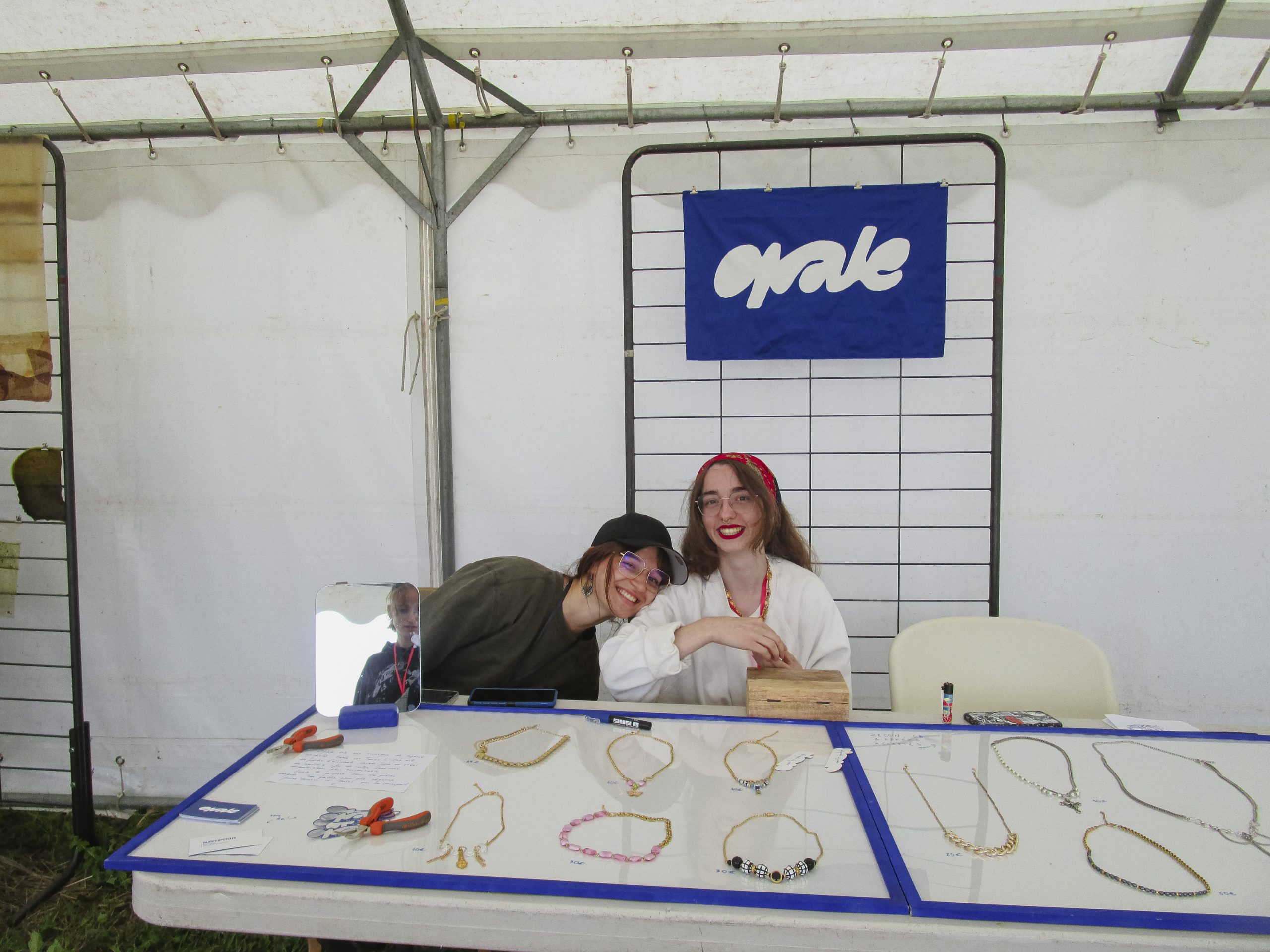
Together, these images compose a powerful narrative about the unique challenges migrant women face, highlighting the crucial importance of mental health and resilience in their journey.
This poignant exhibition underscores the vital role of empathy, understanding, and action in the face of challenges encountered by migrant women. As the European Union elections approach on June 9, we are reminded of the significant impact our votes can have on the lives of individuals like Ola, Tina, and Fereshteh. These elections present an opportunity to support policies that ensure better access to mental health services, promote gender equality, and protect the rights of refugees and migrants.
The stories of resilience and empowerment showcased in “Voices Unveiled” are a call to action. They urge us to participate in shaping a more inclusive, compassionate, and just Europe. Voting is not only our right but our responsibility to those whose voices are often marginalized or unheard.
Let us take this opportunity to vote for a Europe that recognizes the strength in diversity and is committed to creating a supportive environment for all its residents, especially those who have faced unimaginable challenges to find safety and peace.
On June 9, let your vote be a reflection of your commitment to a future where every individual, regardless of their background, has access to the support and opportunities they need to thrive.

“At the crossroads of migration stories”
At the heart of this image, the table becomes the theater of the unique stories of migrant women, whose journeys may have impacted their identity and their intimacy. As a psychologist working with people seeking asylum, I witness every day the difficulties in accessing appropriate mental health care for these women.
The terrestrial globe stands tall, recalling the distances traveled, the borders crossed to get there. Around them, administrative documents are spread out, tangible symbols of their efforts towards a new life. The asylum application, identity papers, accommodation certificates, the language barrier, the multiple guidance letters for an application for entry to the CMP are all milestones on the difficult path before considering an application, possible support.
In order to adapt communication when words, too tied up inside bodies, cannot be verbalized, the DIXIT game card becomes a mediator, inviting expression through images and the liberation of evils. A telephone, a valuable translation tool, demonstrates the need to overcome language barriers to access psychological care.
This scene captures the essence of the internal battles of migrant women, highlighting the psychological challenges linked to the migratory journey. It also discusses the obstacles to overcome in accessing mental care, thus revealing the crucial importance of support adapted to the diversity of their experiences.
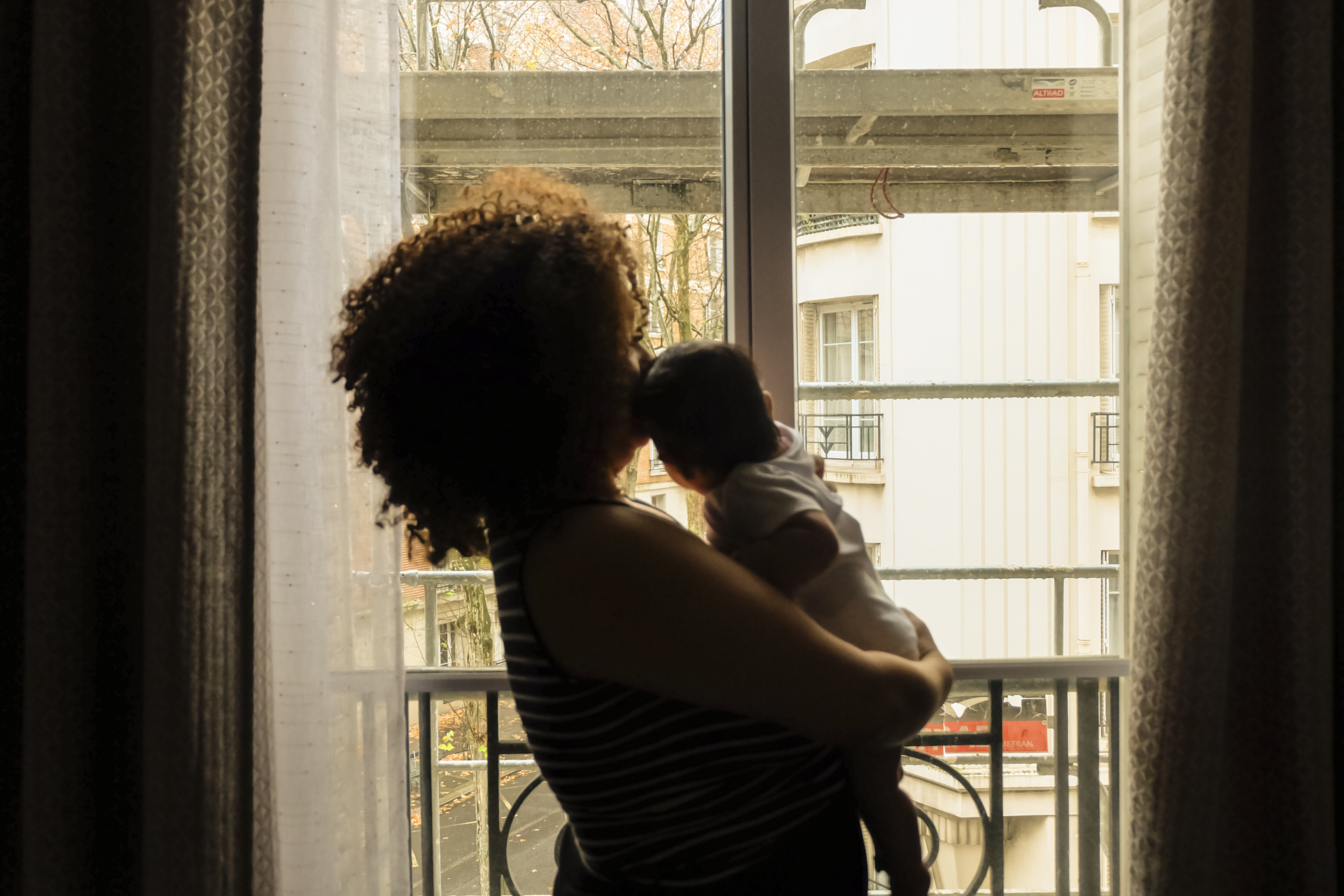
“Ola, A Testimony on the Barriers of Access to Mental Health”
This image highlights the poignant journey of Ola, a young Syrian refugee, whose access to a psychologist was decisive in her quest for understanding and healing.
The photograph of her carrying her baby reflects the unconscious processes unlocked by speech, which were crucial in this pregnancy.
Ola shares the obstacles faced in finding adequate psychological support. Meeting psychologists without interpreting isolated her, while cultural stereotypes imposed by others restricted possible understandings of her experiences. In addition, financial barriers limited his access to essential care.
This photo embodies Ola’s resilience in the face of difficulties, highlighting the need for an inclusive and accessible approach to mental health for migrant women.
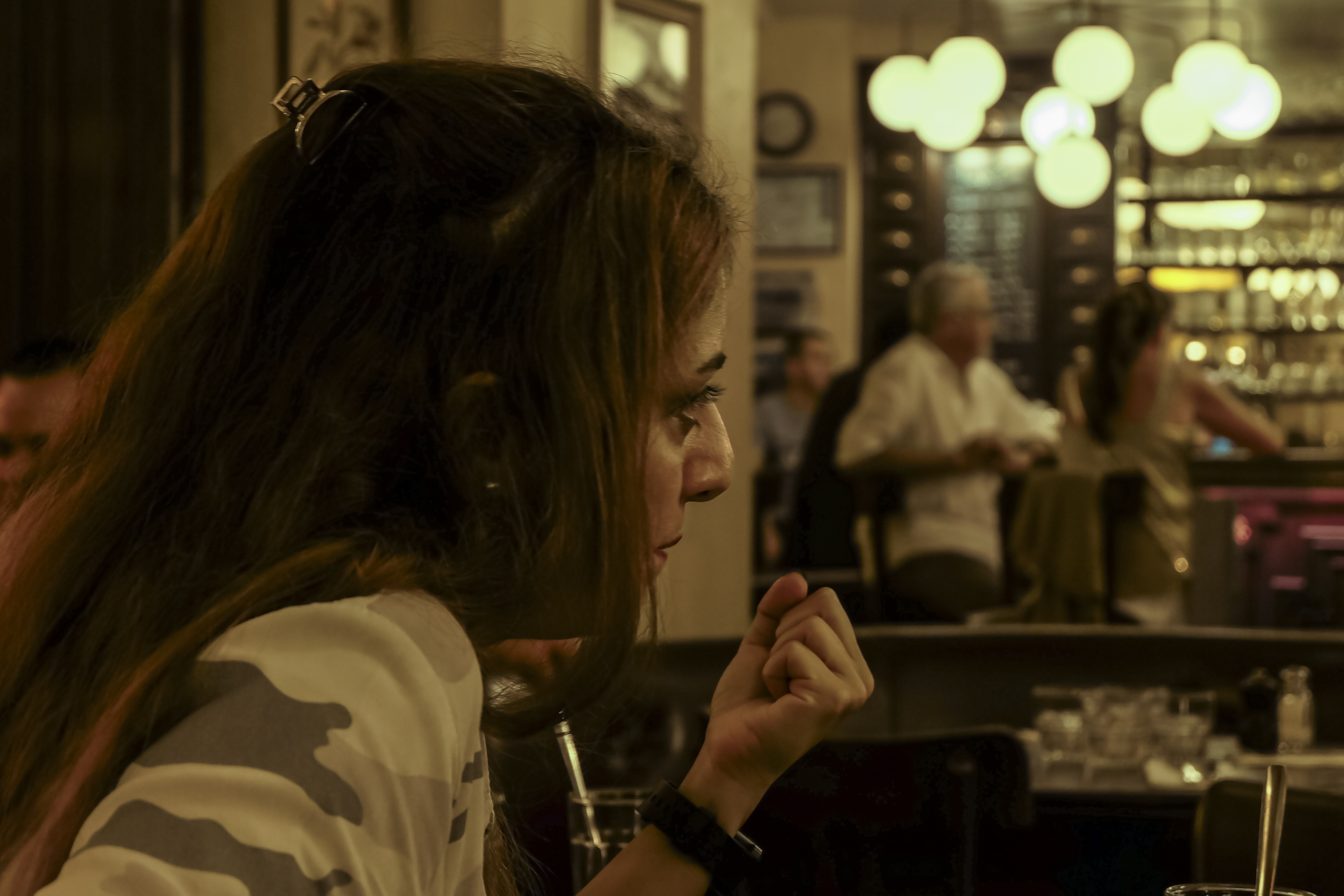
“Tina, political engagement as a path to resilience”
This image presents the poignant commitment of Tina, an Iranian refugee, whose arrival in France was accompanied by considerable challenges. Tina testifies to the difficulties in focusing on learning French and job opportunities, with her mind dominated by the events of political oppression taking place in Iran. Access to a psychologist was crucial in alleviating her discomfort.
But even more, Tina’s political investment gave her a feeling of acting on the situation in Iran. Despite the physical distance, she actively participates in the demonstrations against the Islamic Republic in Paris, supporting her people with determination. This photo illustrates Tina’s transformation from individual distress to collective strength, highlighting the vital role of mental health in migrant women’s sociopolitical engagement.
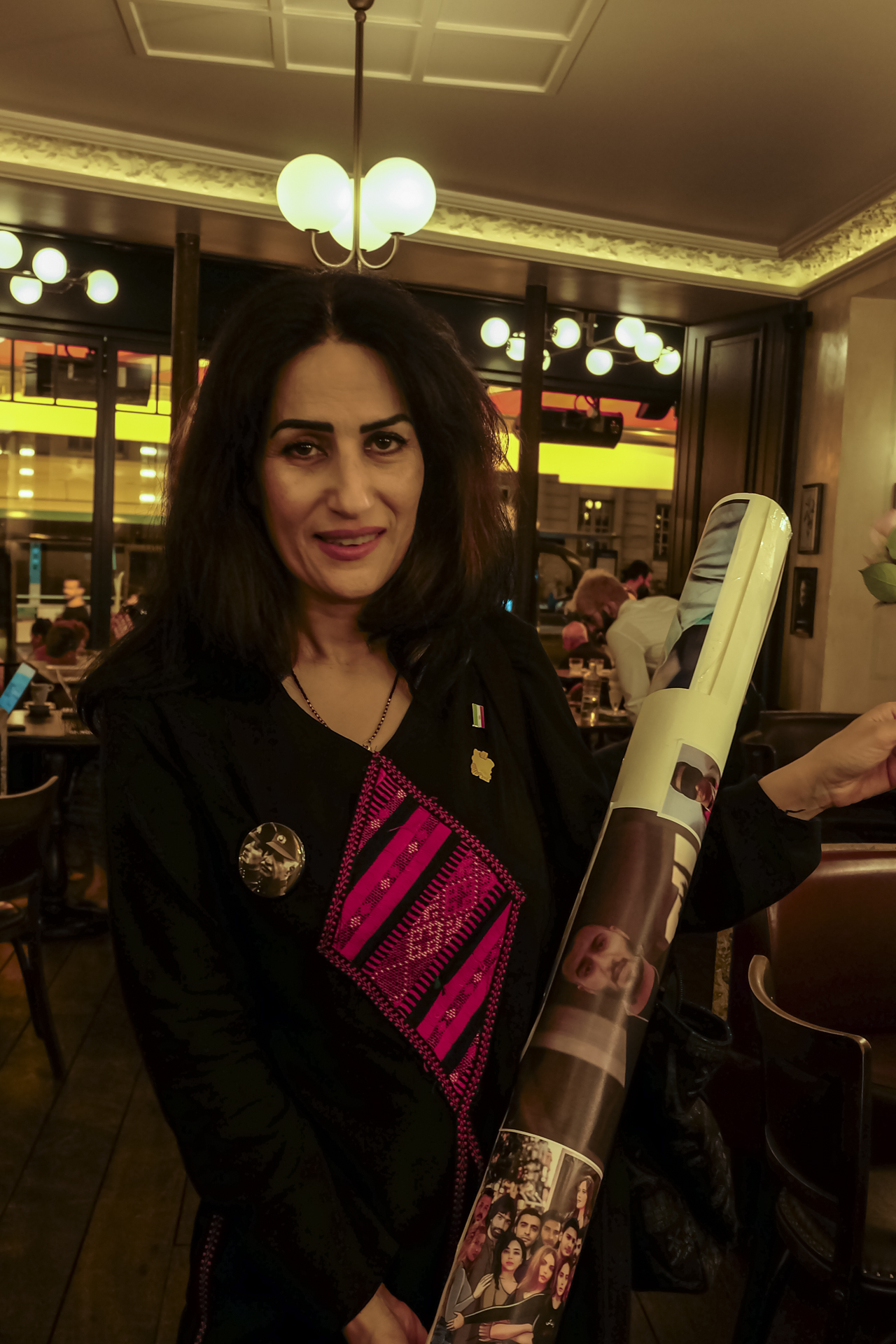
“Fereshteh, Amplifying voices, attracting attention”
This photograph features Fereshteh Nasr, a dancer and Iranian refugee. This photo was taken following a demonstration fighting against the atrocities committed by the mullahs in Iran. She holds up a poster on which we can see the faces of victims of the government, symbolizing the quest for justice and recognition by the French state of the crimes committed in Iran. This photo underlines the importance for any subject to be heard and to be able to express themselves, both in the private setting for psychological relief and in the public and political space.
Fereshteh illustrates how public expression becomes an extension of individual healing. The struggle persists across borders, demonstrating that the need to be heard transcends geographic boundaries. This image embodies Fereshteh’s duality as a dancer and activist, highlighting the power of art and activism in the fight for justice and recognition.
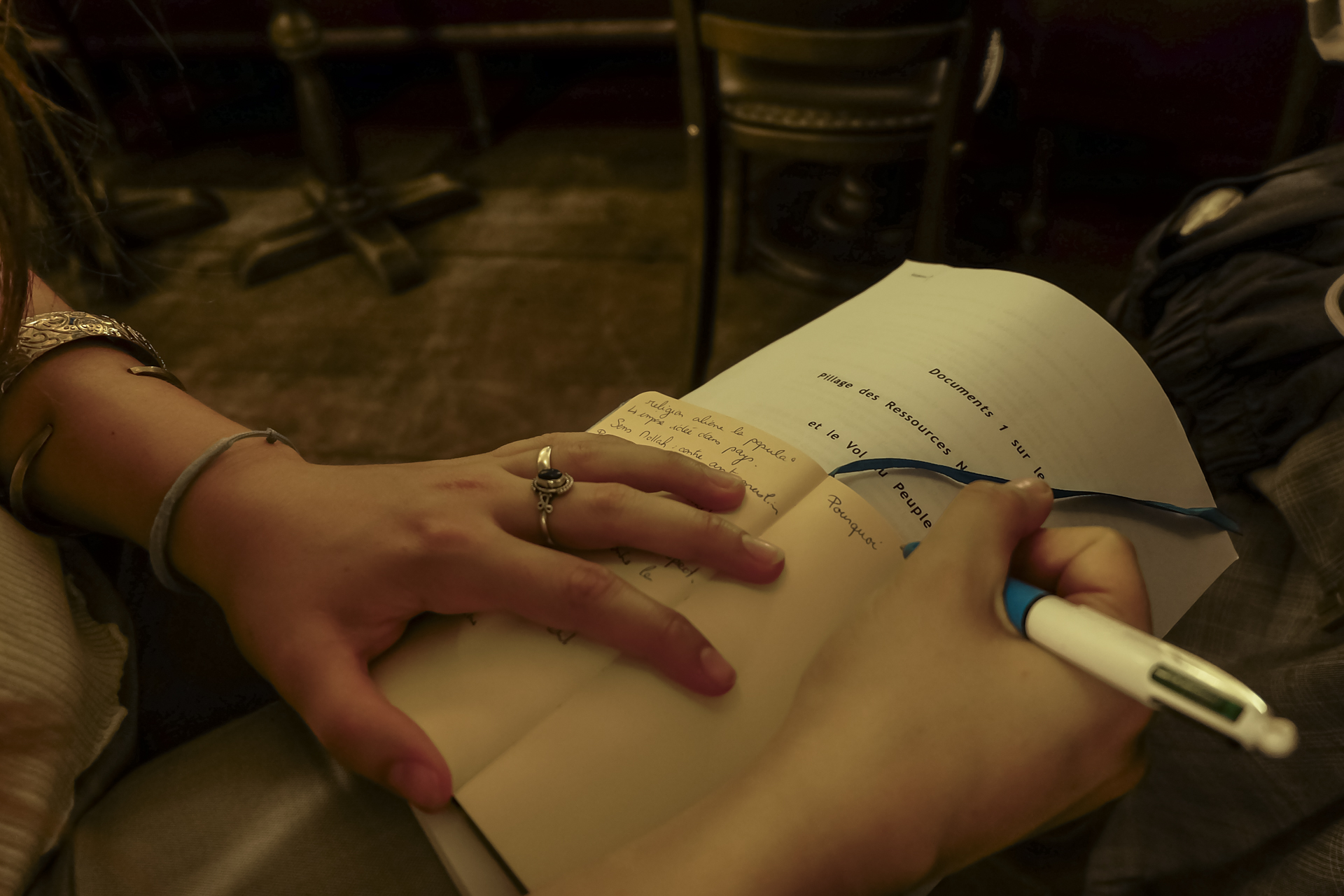
“Leaving traces, sharing testimony”
The last photograph captures a hand writing in a notebook, symbolizing the vital necessity of written expression and the transmission of the testimonies of refugees. The act of writing and sharing the suffering experienced offers a linearity crucial narrative in history, and family transmission. Writing the story avoids gaps that could impact future generations. This image embodies the power of writing as a therapeutic tool and means of preserving collective memory, highlighting the importance of giving voice to painful experiences to ensure emotional and historical continuity.
